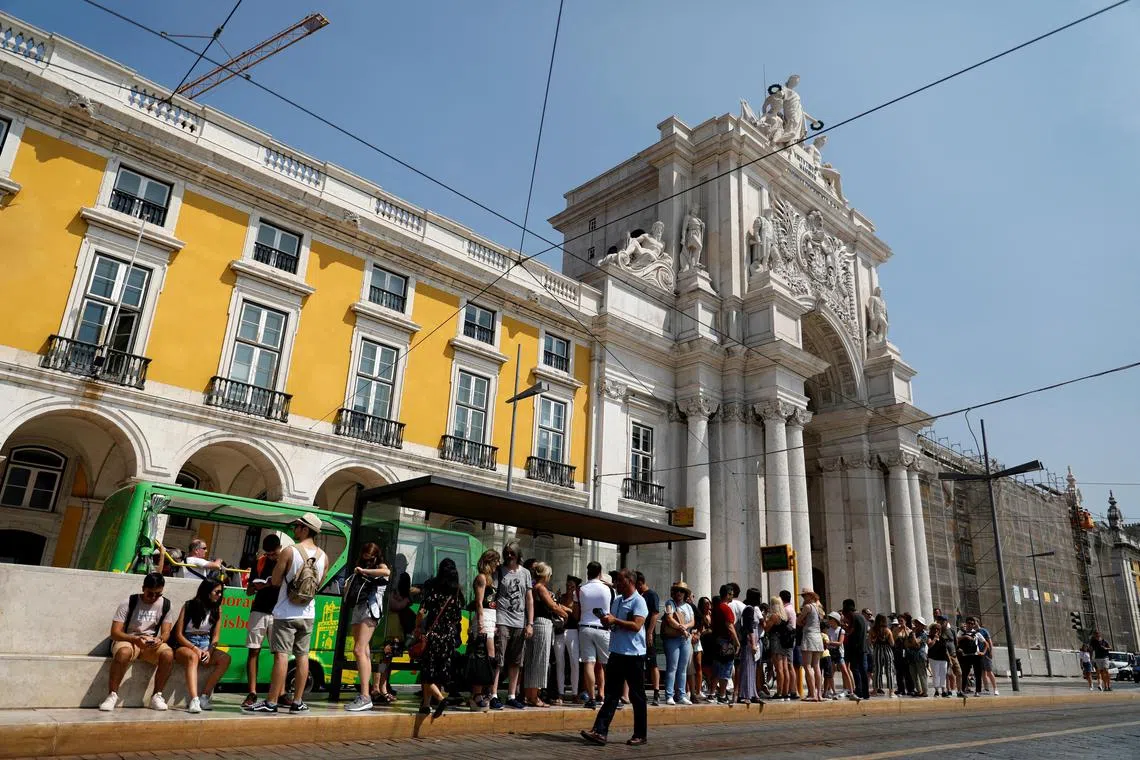Start-ups soar in Portugal
Sign up now: Get ST's newsletters delivered to your inbox

Portugal’s largest cities, Lisbon and Porto, are part of the Scale Cities Alliance, seeking to connect tech hubs across 13 European cities
PHOTO: REUTERS
Portugal’s information and communication technology (ICT) sector employs 80,000 people and contributes about 10 per cent to the country’s gross domestic product, which in 2022 was US$371 billion (S$498 billion) in purchasing parity terms.
According to market research firm IDC’s Startup and Entrepreneurial Ecosystem Report, more than 2,200 start-ups were registered in 2021, and the start-up ecosystem attracted over US$1 billion in funding, double that in 2020.
Portugal’s largest cities, Lisbon and Porto, are part of the Scale Cities Alliance, which seeks to connect tech hubs across 13 European cities. Portugal has also set up a national network of incubators to boost tech start-ups. All these initiatives are paying off.
In 2022, Portugal ranked 28th in the Global Startup Ecosystem Index, which ranks the top 100 countries and 1,000 cities in terms of start-up ecosystem strength.
Portugal has produced seven unicorns so far, including Sword Health, a digital physiotherapy firm; OutSystems, a low-code enterprise development platform; and Farfetch, a luxury fashion portal.
The AI Portugal 2030 document outlines several areas of specialisation, including artificial intelligence (AI), the Internet of Things (IoT), cyber security, smart mobility, green energy and sustainable urban development. A plan to install an AI hub in Lisbon is under discussion, and that would entail €1.5 billion (S$2.2 billion) of investment per year by private and public entities, leveraging European Union funds.
One noteworthy initiative to encourage start-ups, the Unicorn Factory Lisboa, says it has 60 partners, including Google, Microsoft, AWS Startups and PwC. The Portuguese capital has converted 18 decrepit industrial buildings facing the port into a vibrant technopreneurial complex, supported by US$55 million worth of private investment from tech firms, including European managed IT services provider, Claranet.
“Our support structure includes mentoring, links to strategic partners and access to venture funding,” Unicorn Factory’s website states. More importantly, it offers a co-living space to help staff overcome the problem of soaring rents, caused in part by the influx of foreigners buying properties in Portugal.
Some 160km south of Lisbon, the city of Sines plans to host the Sines 4.0 Project, a €3.5 billion hyper-scale data centre, to be funded by a US investment fund and a British company. Powered entirely by green energy, it will be Europe’s largest sustainable data centre campus.
Once it is completed in 2025, Portugal will have Europe’s second-largest data processing capacity, after Ireland.


